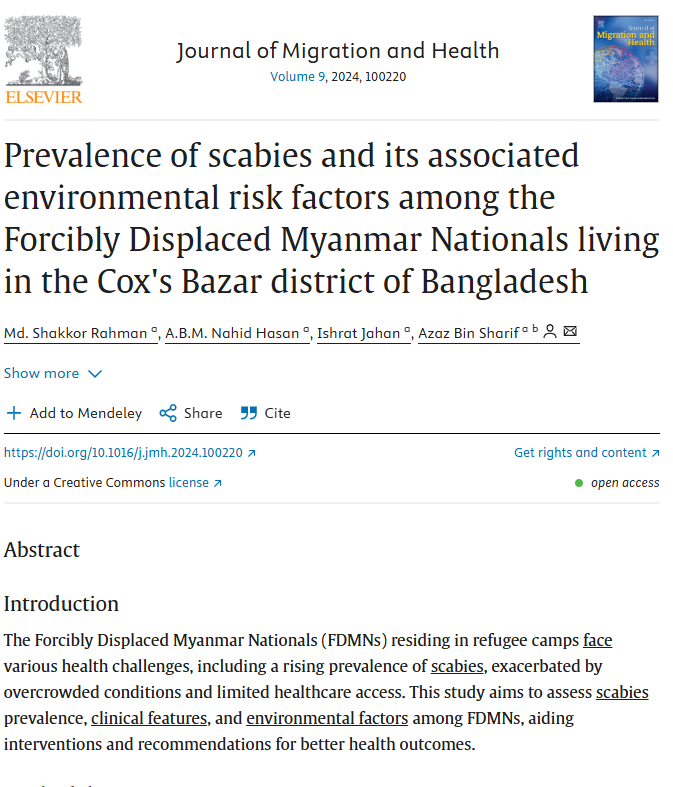
In a significant advancement for public health research, Mr. Md. Shakkor Rahman, a dedicated researcher at the ART Lab, has recently published a pivotal study in the Journal of Migration and Health. This research sheds light on the alarming prevalence of scabies among the Forcibly Displaced Myanmar Nationals (FDMNs) residing in the Cox’s Bazar district of Bangladesh, a community that has faced immense challenges since their displacement.
Understanding the Issue
Scabies, caused by the Sarcoptes scabiei mite, is a highly contagious skin condition that thrives in overcrowded and unsanitary living conditions. The study conducted by Mr. Rahman and his team reveals that a staggering 66.42% of participants in the refugee camps were diagnosed with scabies. This statistic underscores the urgent need for improved healthcare services and living conditions for the FDMN population, who are already vulnerable due to their circumstances.
Key Findings
The research identifies several environmental risk factors contributing to the outbreak of scabies in the refugee camps. Overcrowding, limited access to hygiene facilities, and inadequate healthcare resources create an environment where scabies can spread rapidly. The study emphasizes the importance of addressing these factors to mitigate the risk of further outbreaks and improve the overall health of the community.
Implications for Public Health
The findings of this study are crucial for informing public health interventions aimed at controlling scabies among the FDMNs. By understanding the prevalence and associated risk factors, healthcare providers and policymakers can develop targeted strategies to enhance hygiene practices, improve living conditions, and ensure access to necessary medical care.
A Call to Action
Mr. Rahman’s research serves as a call to action for stakeholders, including government agencies, NGOs, and international health organizations, to collaborate in addressing the scabies crisis. Enhanced screening and treatment programs, along with educational initiatives focused on personal hygiene, are essential to combat this neglected public health issue.
Conclusion
As we celebrate the publication of this important research, we recognize the dedication and hard work of Mr. Md. Shakkor Rahman and his team. Their commitment to improving health outcomes for vulnerable communities is commendable, and we hope this study will lead to meaningful changes in the lives of the Forcibly Displaced Myanmar Nationals in Cox’s Bazar.
For those interested in exploring the full study, it can be accessed here: Prevalence of scabies and its associated environmental risk factors among the Forcibly Displaced Myanmar Nationals living in the Cox’s Bazar district of Bangladesh – ScienceDirect
#PublicHealth #Scabies #Rohingya #CoxsBazar #ARTLab #Healthcare

